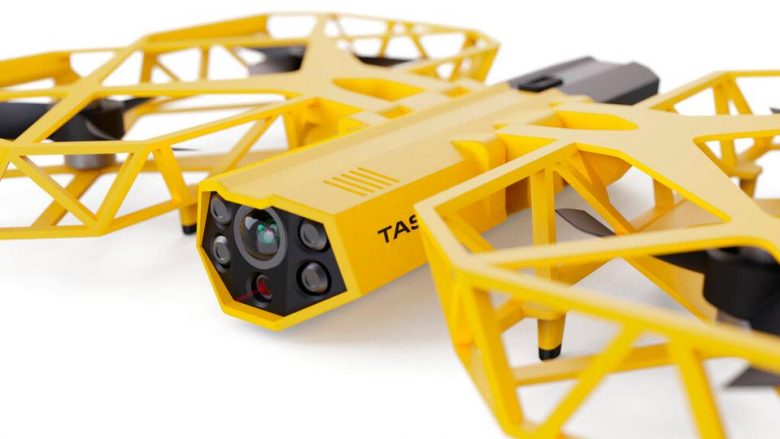Taser developer Axon said this week it is working to build drones armed with the electric stunning weapons that could fly in schools and “help prevent the next Uvalde, Sandy Hook, or Columbine.” But its own technology advisers quickly panned the idea as a dangerous fantasy.
The publicly traded company, which sells Tasers and police body cameras, floated the idea of a new police drone product last year to its artificial intelligence ethics board, a group of well-respected experts in technology, policing and privacy.
Some of them expressed reservations about weaponizing drones in over-policed communities of color. But they were not expecting Axon’s Thursday announcement that it wants to send those Taser-equipped drones into classrooms to prevent mass shootings by immobilizing an intruding gunman.
In an interview with The Associated Press, Axon founder and CEO Rick Smith said he felt compelled to make the idea public after the mass shooting at an Uvalde, Texas elementary school, saying he was “catastrophically disappointed” in the response by police who didn’t move in to kill the suspect for more than an hour.
Axon’s stock price rose with the news. But the announcement angered members of the ethics board, some of whom are now likely to quit in protest.
“This particular idea is crackpot,” said Barry Friedman, a New York University law professor who sits on the Axon AI Ethics Board. “Drones can’t fly through closed doors. The physical properties of the universe still hold. So unless you have a drone in every single classroom in America, which seems insane, the idea just isn’t going to work.”
Friedman said it was a “dangerous and fantastical idea” that went far beyond the proposal for a Taser-equipped police drone that board members — some of them former or current police officials — had been debating in recent months.
Smith told a Reddit user that Axon was “absolutely not” trying to capitalize on recent tragedies to attract investors. He noted the advisory board’s disagreements but said the mass shooting in Uvalde, Texas — and what he described as misguided proposals to arm teachers with guns — compelled him to go public with the drone idea to field a “far broader array of voices.”








